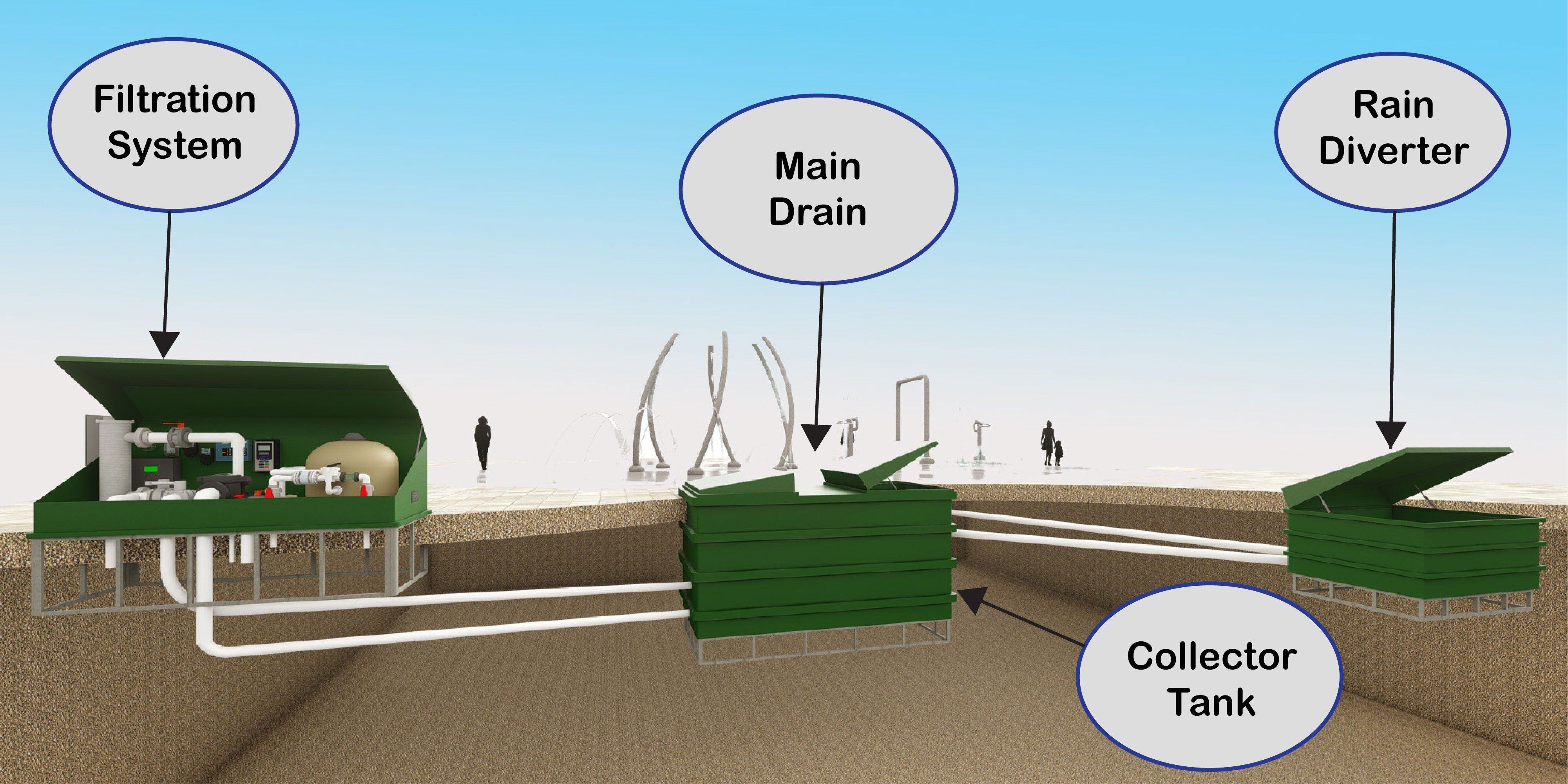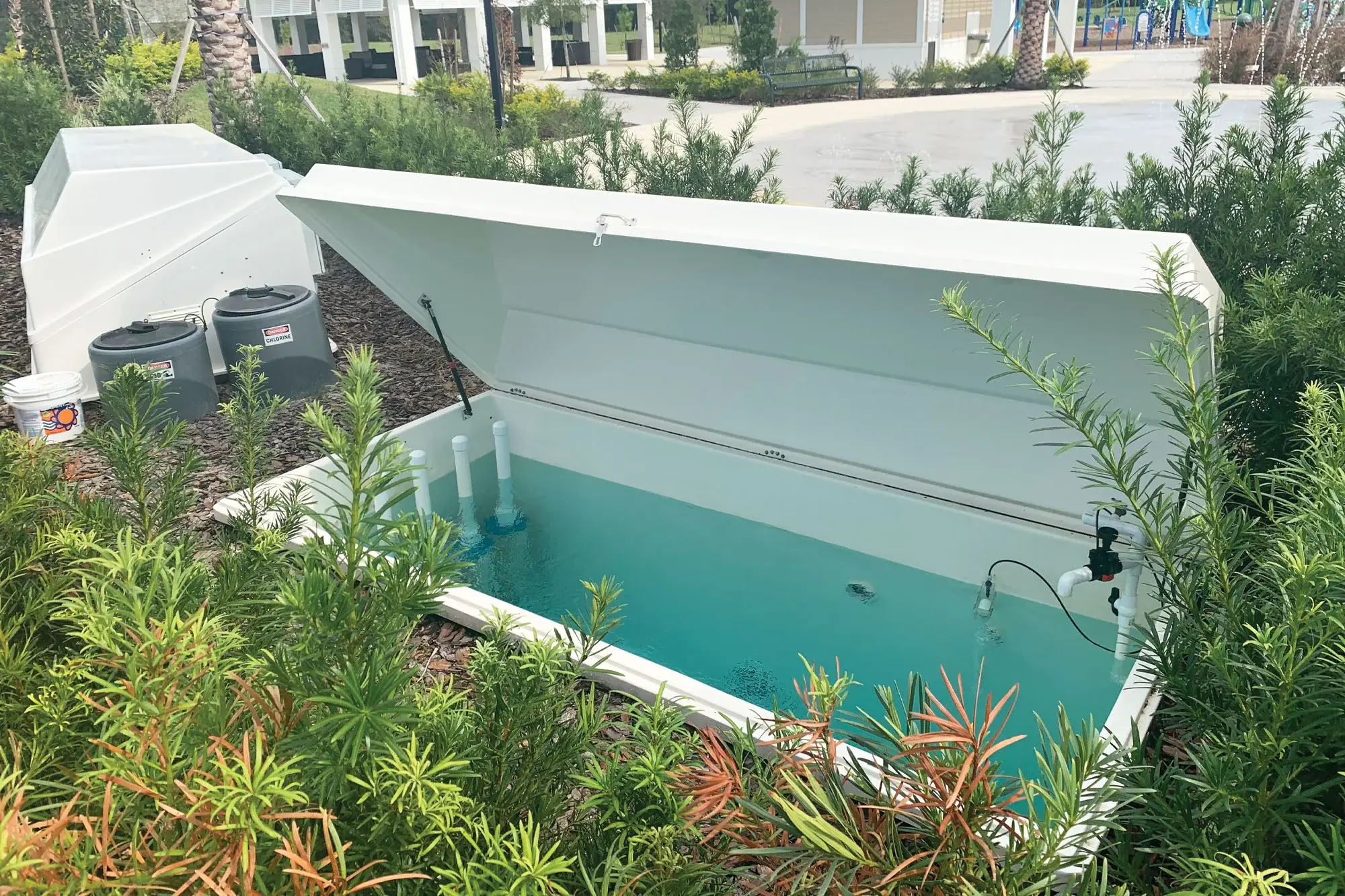How Collector Tanks Make Splash Pads More Sustainable
This Earth Day is a timely reminder to examine the impact of our daily water usage and explore sustainable practices that can help conserve this essential resource. One innovative solution that stands out is the adoption of recirculating filtration systems with collector tanks that utilize pool filters. Learn about the environmental benefits of this water management technology, showcasing how it aligns with the Earth Day ethos of protecting our planet for future generations.

Traditional splash pads typically use flow-through systems, which draw potable water that is used once before being discharged into the sewage system. This process not only wastes water but also places unnecessary strain on municipal water supplies. In contrast, recirculating filtration systems represent a significant advancement in water conservation. These systems collect water in a collector tank, treat and filter it, and then recirculate it back to the splash pad's water features. This closed-loop process allows the same water to be reused multiple times, dramatically reducing the amount of freshwater needed and conserving this resource.
Collector tanks are integral to the efficiency of recirculating systems. These tanks are designed to hold more water than the splash pad immediately requires, which ensures that the filtration system has a consistent supply of water to treat and that the flow rate remains stable. This setup not only supports continuous operation without the need for constant freshwater input but also ensures that the water quality is maintained to a high standard with pool filters, making it safer and more pleasant for the water play area users.
By minimizing the demand for fresh potable water, collector tanks alleviate the pressure on local water utilities and reduce the ecological footprint of aquatic facilities. This is particularly critical in areas prone to droughts where water conservation is essential for sustainable community living. Moreover, by treating and reusing water, these systems prevent the continuous introduction of used water into sewage systems, thereby reducing potential contamination and processing load on wastewater treatment plants.
Adopting recirculating filtration systems in splash pad design is a step forward in the movement toward sustainable urban development. These systems not only provide immediate environmental benefits but also serve as a model for responsible water management in other facets of community infrastructure. They demonstrate how technology can be leveraged to make water play spaces more eco-friendly while maintaining the fun and engaging atmosphere that water playgrounds are known for.

